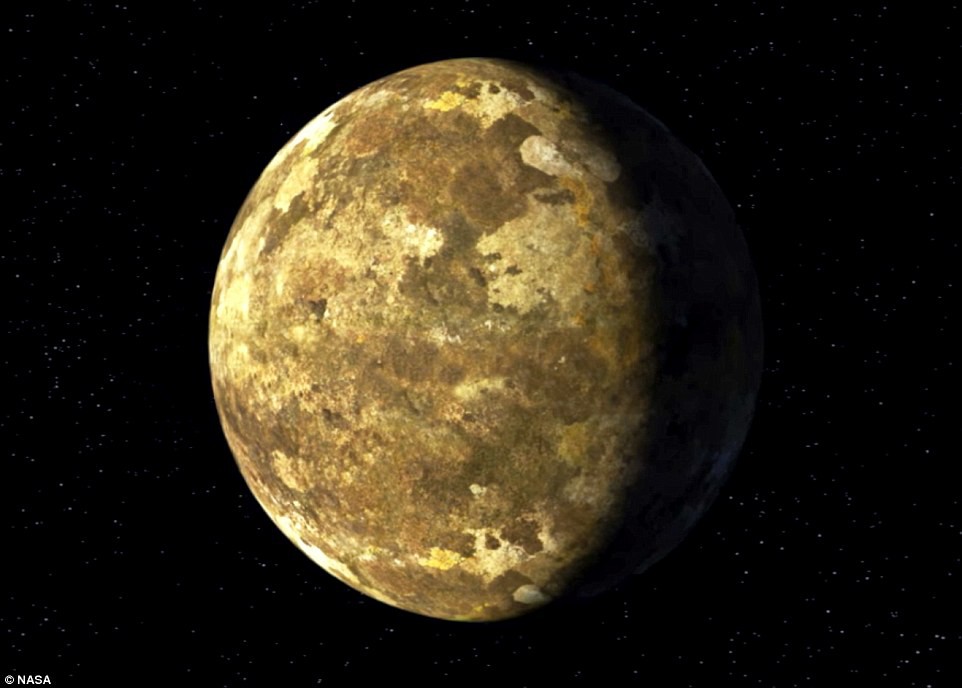NASA announced: Google's AI detects new planets that cause the Solar System's record to be leveled
At the new press conference, NASA announced the discovery of the Kepler-90 star system with the most planets in the same system ever.This star system is considered by the researchers as a mini version of our Solar System.
So far, the solar system is a special star system with the existence of the Earth, the only planet known to man that can nourish life and is the most planetary star system, with 8 crystals the bridge revolves around the Sun.

Previously, scientists discovered the star system Kepler-90 has a total of 7 planets. But recently the eighth planet of this star system has been discovered, located 2545 light years from our Earth. With this finding, the official Kepler-90 star system parallels our Solar System in terms of the number of globules around a star.
The new planet is named Kepler-90i. This is a hot planet with a solid surface and has an orbit of 14.4 days around Kepler-90.
The interesting thing here is that the planet was discovered thanks to the combination of Kepler telescope and AI system (artificial intelligence) that can "learn" (machine learning) by Google.
Based on the signals that Kepler obtained from exoplanets (exoplanets), the AI analyzed and confirmed the signal of a new planet.

Star system - planet Kepler-90.
2 researchers Christopher Shallue and Andrew Vanderburg have 'trained' a computer capable of analyzing light data (very small changes in brightness when a planet moves across a star) again from Kepler to find exoplanets.
The "network neuron" in AI will dig up Kepler's data, looking for extremely small signal changes. And finally he found the eighth planet of Kepler-90 in the constellation of Draco.
Previously, machine learning technology was also used to study Kepler's data but was not expected too much. This success has shown that it has a great ability to find the smallest signals in extremely distant galaxies that humans cannot reach.

The planet across the star's host will create a very small change in the light signal.
Kepler-90i is about 30% larger than Earth, very hot surface temperature - about 420 degrees Celsius, which is equivalent to Mercury's temperature in the solar system. Kepler-90h is the furthest planet of Kepler-90 with the same distance as the Earth to the Sun.
Vanderburg, an astronomer from the University of Texas and a graduate student at NASA, said the star system - the planet Kepler-90 has large outer planets, a small inner planet similar to our own, but about The way is much smaller. Therefore, it is like a miniature version of the solar system.
Within four years, Kepler received 35,000 signals that could potentially be a new planet. This is a huge data warehouse. In the past, these signals were checked by human eyes and software automatically but were not highly effective because weak signals were often ignored. Shallue and Vanderburg believe that these data may contain unprecedented findings. And they decided to teach the way neuron system of AI to confirm signals from exoplanet, based on 15,000 previously recognized signals.
The results were more amazing than expected, even in the first tests AI achieved 96% accuracy. The system continues to self-study to achieve higher accuracy.
Based on the assumption that star systems have more than one planet as the most suitable place to search for more hidden planets, experts have directed the system to look for weaker signals out of a total of 670 star systems. There have been many confirmed planets.

Kepler-90i simulation.
The AI has found more than a new planet, in addition to Kepler-90i, it has also discovered the sixth planet in the Kepler-80 star system, which has five planets. The planet is about the same size as the Earth and is named Kepler-80g.
After this success, Shallue and Vanderburg planned for the AI system to scan Kepler's entire data system, including 150,000 stars in the hope of finding more planets and increasing the ability to detect another civilization. .
See more:
- Kepler detects three new exoplanets orbiting 'super-Earth'
- NASA declares the existence of the 9th planet in our Solar System
You should read it
- ★ Kepler detects three new exoplanets orbiting 'super-Earth'
- ★ Nvidia releases new driver packages for Kepler GPU lines and many unsupported Windows versions
- ★ Discovered 20 Earth-like planets that could contain life
- ★ Discovering the planet has an orbit of 4.5 hours, where people can live 150,000 years
- ★ 12 interesting records of planets in the universe